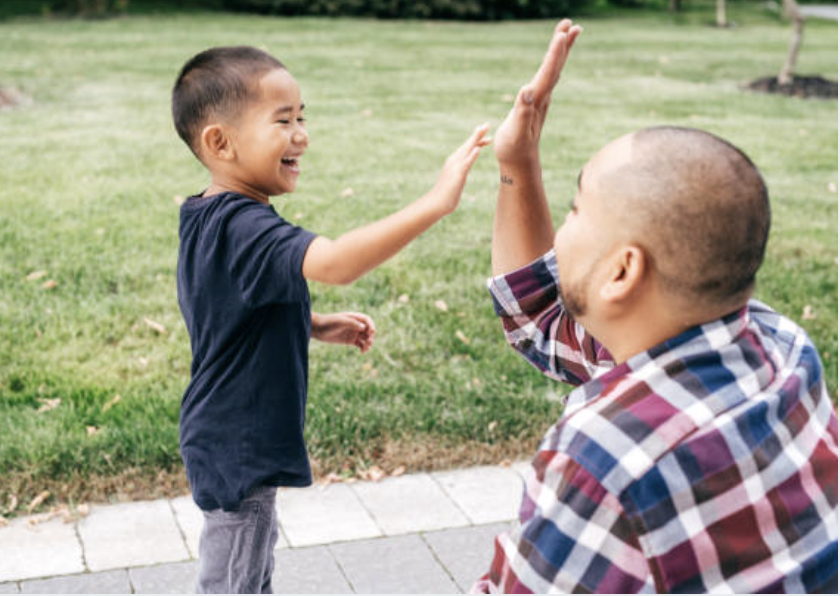The Real Work pt 2: Interrupting Triggers
the heart of the matter
In the last Morning Cup of Calm I wrote about how the wounds from our childhood, and even from past generations, imbed themselves as triggered reactions that show up in our parenting. Does your tween’s eye-rolling send you into a rage? That’s a trigger. Does your spouse’s slow reaction to your kid’s meltdown make your heart race? Also a trigger? Does your kiddo leaving their pajamas on the bathroom floor send you spiraling back to the screaming arguments you had with your mother during the great towel wars of 1989? Ok, maybe that last one is a bit specific to me.
If you find yourself struggling with these triggers, consider enrolling in one of the parenting classes I offer focused on positive parenting techniques. These classes can provide valuable insights and tools to help navigate and heal from these triggering reactions in a healthy and constructive way.
Today, we are going to look at how to interrupt these reactions. Let’s start with a few tools.
The Five Second Pause
When our fight/flight response takes over our mind and body, the reaction feels automatic (it isn’t). You have about .1 second between the stimulus and response. During that instant, your brain conducts a snap scan of your context to understand the potential threat. Let’s imagine that you are late getting your crew out of the house.
Now picture different versions of your crew: your significant other, your kids, your parents, your friends. Are your reactions different in each situation? Of course they are. Your reactions shift because your brain analyzes the situation before you react. Your potential for growth lies in this split second. You will retrain your brain to recalculate the context and adapt so that the behaviors of your child are connected with a context of your own safety, power, and self-control. In that retraining, you will find the ability to do NOTHING, when doing nothing matters the most.
The goal here is to expand that .1 second to five seconds. If you can do nothing for five seconds, then you can access a plethora of tools and responses available to you. So how do we expand that moment?
Training
Fortunately, triggers usually happen in predictable ways and times. I bet you can name three situations that account for 80% of your fight/flight reactions. I’m also willing to bet that one of these situations involves getting your kids out the door in the morning, so let’s stick with this example. The Greek poet Archilocus said, “We don’t rise to the level of our expectations, we fall to the level of our training.”
Getting our kids out the door is a hard thing! So let’s treat it that way, and prepare for it. Understand that getting out the door is a complex task involving multiple skills and attributes that your kid may not have yet. These include intrinsic motivation, the ability to follow multiple steps, moving through transitions, working through fatigue or grumpiness, etc. You are going to help your kiddo build these skills, and you will do that through your own preparation.
In the morning, get yourself ready 10 minutes earlier so that you can be more present for your child. Part of the morning stress is that we are simultaneously preparing ourselves and our kids. So get yourself ready first.
Then, take a deep breath, and tell yourself that you are going to help your kiddo build skills! Move your child through the getting ready process by encouraging, engaging, challenging, and playing, especially playing. Expect delays and setbacks as part of the training.
Notice and shower encouragement on your kids when they make even incremental improvement! When you understand that you are building skills, it moves you to be more involved in the teaching, and also to have more patience for your kids.
Mantras
I think all parents need a couple of mantras to remind ourselves to stay calm and grounded. A mantra is a short, positive phrase that reminds us that we can move through the moment without going into fight/flight. My go to is, “this is not an emergency.”
Another one I like is, “My child is expressing a need, what is the need?” My husband’s fave is “this is not about me.” In each case, we are taking some of the bite out of the behavior, and depersonalizing it. What’s a good mantra for you?
Meshing
Meshing is an amazing and underutilized visualization tool. You imagine that you are made of mesh - maybe a fishing net, or a screen door. This mesh catches only the important things. Any triggering stimuli will pass straight through. I’ve used meshing when in conversations with my mother, when trying to figure out where my Amazon package went, and in meetings with that one coworker… you KNOW which one! In our morning routine example, you can mesh right before you engage with your kids, so that any ignoring, eye rolling, yelling, just passes right through you.
These are all great tools for interrupting the triggered response. What’s the next time you are likely to be triggered? Which of these tools (or combination of tools) makes sense for you?
For the next couple of weeks, practice spacing out the time between trigger and reaction. See if you can slow down your fight/ flight reaction. In two weeks, we’ll look at how to actually heal the wounds that cause these triggers.
we’re obsessed with
Being 13. Three girls, one year. This is what it's like to be 13 today, in a world that can't stop talking about the dire state of your future. This article cemented my stance on screen time and social media... and not in a positive way.
Is College Worth It? Have you noticed that our conversation about the importance of college is shifting. I'm talking to my kids about college as optional in a way my parents never discussed with me. I'm not alone. Listen to this fascinating interview with Paul Tough about the data around college and how this is shifting our cultural attitudes.
where we’ve been
Youth Development Workshops
Last month, I facilitated Staff Training Workshops at Kids’ Country. The workshops helped enhance the capacity of Kids’ Country staff to provide relevant and culturally-grounded support.
I was a guest on The Queer Family Podcast. Listen to how my husband and I defied convention in our journey to parenthood by adopting two wonderful white children. Listen here.
Staff Retreat Presentations
Today, I'm in San Diego, presenting Wounds & Wisdom: Empathy workshop to Cell-Ed.
Book a workshop for your school or organization.
Bring The Village Well to your school or organization. We provide powerful, interactive and fun workshops for parents and/or staff. Learn more.
Ed Center, the founder of The Village Well, is a parenting coach and educator certified in the Triple P method. The Village Well is a community of parents in BIPOC families, focused on attaining more joy, calm, and meaning in family life. We coach parents to prioritize their own healing and wellness, deepen connections with their kids, and learn tools to support better behavior. Services include Parenting workshops, Parenting courses, and community events. Our support is culturally-grounded support and honors your unique family. Ready to stop yelling? Schedule a free consultation with one of our team members.
FOLLOW THE VILLAGE WELL ON:















